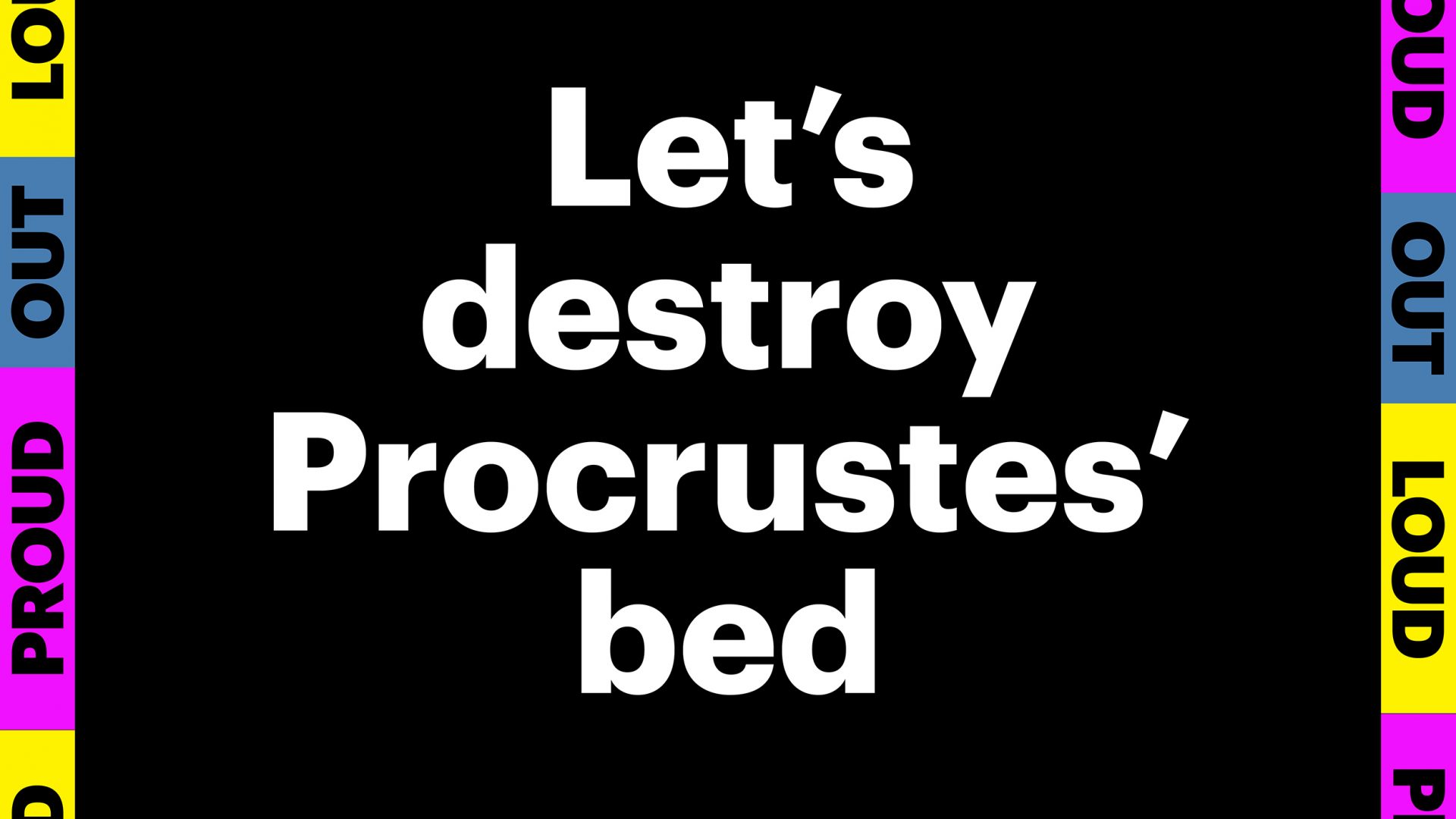
Let’s destroy Procrustes’ bed
A few months ago, a teacher scorned a student at school. He did so because the student chose to dress in a way that didn’t conform to the social stereotypes linked to her gender expression. The teacher called that child an “abomination to society” because in the school registry she had a male name but chose to come to school wearing a skirt. The teacher expelled the student, thus confirming a survey’s findings regarding school climate1 that showed that 85% of the children have heard the word “gay” only in a negative context at school, while 96% said they’ve heard negative comments for “students who don’t behave in a manly manner”, 75% have heard transphobic comments and 65% have never heard something positive about LGBTQI people during school classes.
Diversity in the way people experience or express their sexuality and gender is a universal and timeless phenomenon. Its depictions are present in every known civilisation. From ancient Greek pottery and poems to Two-Spirit People in America or the Hijras in Asia. On the other hand, there has also been a constant struggle in order to gain control and to manipulate human sexuality, the human body, reproduction and all the ways in which people express and fulfil fundamental needs such as the need for love, integration and recognition.
But to which society is a young person who is fiercely claiming its diversity and the right to discuss sexuality, sexual health, gender expression and identities at school, an abomination? Definitely not to her peers’ society at school because they all defended the young person’s otherness. They reversed their school outfits in order to send a clear message that clothes don’t define one’s gender, just like “the habit does not make the monk”!
The whole issue is rather an embarrassment (an abomination) for our educational system. Mainly for those who serve it and even though they’re aware of the system’s needs and are witnessing the problems caused by ignorance, they still haven’t included sexuality education in their planning or in any kind of serious demands’ list. It’s also an embarrassment for those who have been shaping the education system over the years. They’re scared of a public discussion regarding the traditional inflexible stances that oppose sexuality education, thus allowing unscientific and undemocratic views to be seen as our society’s standards, even though they’re not. The same patterns will keep occurring as long as there’s no comprehensive sexuality education in our schools. This becomes apparent through the negative indicators of our population’s sexual health as shown in sexual abuse and gender-based violence cases.
UNESCO2 states that comprehensive sexuality education “aims to equip children and young people with knowledge, skills, attitudes and values that will empower them to: realize their health, well-being and dignity; develop respectful social and sexual relationships; consider how their choices affect their own well-being and that of others; and, understand and ensure the protection of their rights throughout their lives”. Comprehensive sexuality education is inclusive not because there are LGBTQI students or teachers or because they have LGBTQI members in their families, but because sexual otherness is an inherent characteristic of every society. Our inability to offer inclusive comprehensive sexuality education and to protect LGBTQI people from abuse, stigmatisation and violence is essentially an inability to live in a society that has room for everyone – in other words, in a human society.
So people who are claiming their visibility aren’t an abomination to society, because otherness is the rule rather than the exception. The true abomination is when this isn’t recognised, because in this case, we’re encouraging the existence of social systems that aren’t that different from Procrustes’ infamous bed. Woe to those who don’t fit or are rather…
Footnotes
- Colour Youth – Athens LGBTQ Youth Community, “School Climate Survey“, 2018[↩]
- UNESCO, International Technical Guidance on Sexuality Education, 2018[↩]
